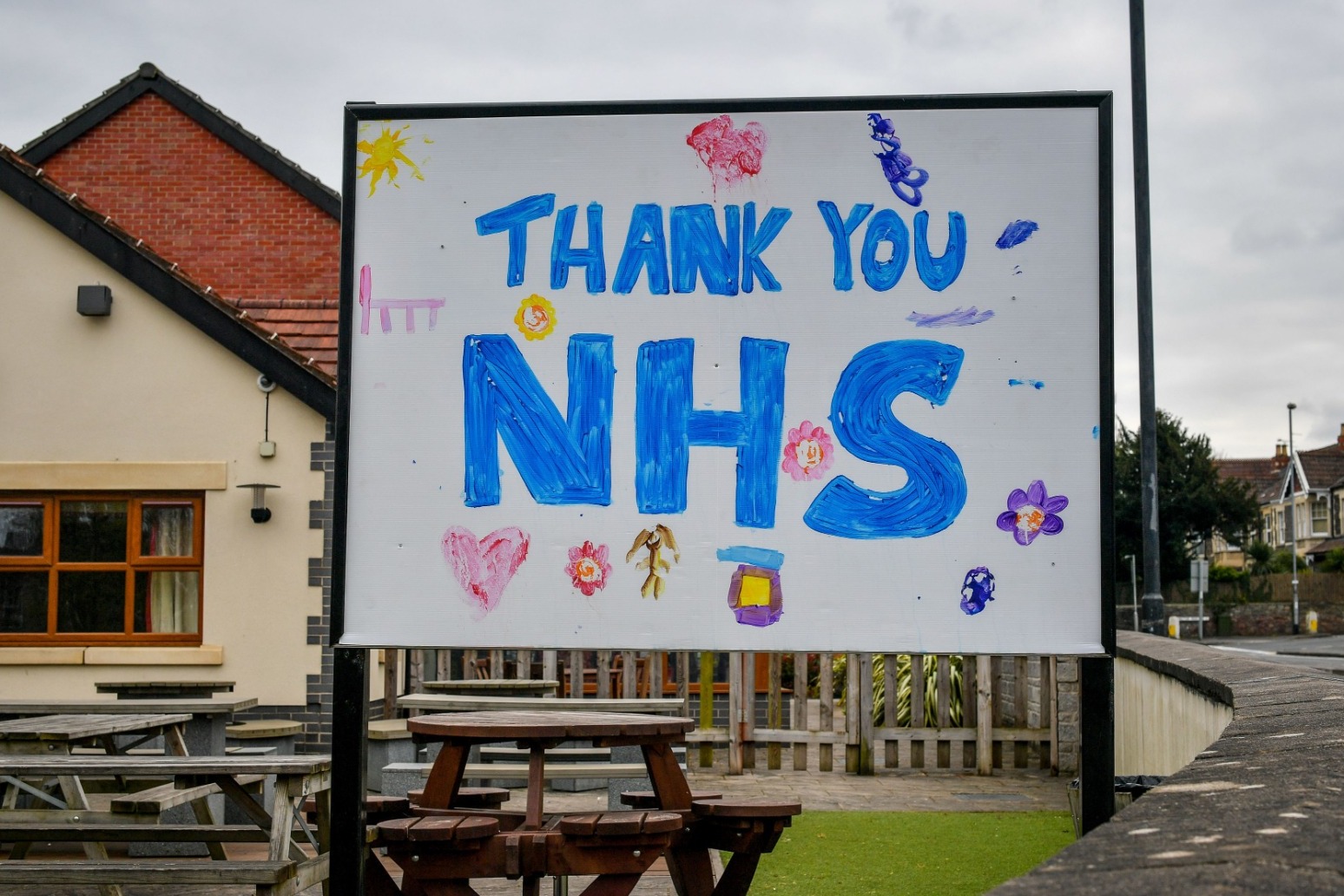
Covid-19 patients could have treatment withdrawn to save others
Coronavirus patients could have their treatment withdrawn and offered to others who are more likely to survive, new guidance for doctors has warned. The British Medical Association's (BMA) latest ethics advice said health professionals could be forced to make "grave decisions" should hospitals become overwhelmed with patients.
The document warns that decisions around rationing scarce resources, such as ventilators, could determine whether large numbers of patients will receive life-saving treatment or not.
It comes as the UK experienced its biggest day-on-day rise in deaths so far, with the Government now facing increasing pressure over its Covid-19 testing policy.
Some 2,352 patients have died in hospital after testing positive for the virus as of 5pm on Tuesday, the Department of Health said, up by 563 from 1,789 the day before.
Prime Minister Boris Johnson said in a video posted on Twitter that it was a "sad, sad day" and that his "thoughts go out to the families of the victims".
Meanwhile, Downing Street said more than 2,000 NHS staff have so far been tested for coronavirus.
The Government has faced intense scrutiny over its Covid-19 testing policy for both NHS workers and the wider public.
In other developments on Wednesday:
- Defence Secretary Ben Wallace became the fourth Cabinet minister to self-isolate due to Covid-19.
- Key United Nations "Cop26" climate talks which were set to take place in Glasgow in November were postponed until 2021.
- The World Health Organisation said the number of confirmed Covid-19 cases around the globe will exceed one million in the coming days.
- The family of 13-year-old Ismail Mohamed Abdulwahab, from Brixton, south London, who died after testing positive for coronavirus, appealed to the public to follow social distancing rules in order to protect the NHS and save lives.
- A retired NHS doctor who had continued to work part-time at a hospital died after reportedly contracting coronavirus.
- The All England Club announced Wimbledon would not be staged this year for the first time since World War Two.
- The family of British man John Carter, 75, who died on board the coronavirus-stricken Zaandam cruise ship, have pleaded with US President Donald Trump to allow the ship to dock as his widow remains
- A string of summer festivals in Edinburgh, including the International Festival, Festival Fringe, Art Festival, International Book Festival, and The Royal Edinburgh Military Tattoo, were cancelled for the first time in more than 70 years.
The BMA's new guidance - published on Wednesday - aims to ensure doctors have clear and "ethically sound support" should they have to make tough decisions around patient care during the pandemic.
Dr John Chisholm, chairman of the BMA's medical ethics committee, said: "Looking ahead to the coming weeks, if hard choices are required, we know they will be contested. There will be anger and pain.
"People who, in normal circumstances, would receive strenuous treatment may instead be given palliation in order to favour those with greater likelihood of benefiting.
"Nobody wants to make these decisions, but if resources are overwhelmed, these decisions must be made."
The BMA's guidance states that during the peak of the pandemic doctors may have to assess a person's eligibility for treatment based on a "capacity to benefit quickly" basis.
"Health professionals may be obliged to withdraw treatment from some patients to enable treatment of other patients with a higher survival probability," the guidance states.
"This may involve withdrawing treatment from an individual who is stable or even improving but whose objective assessment indicates a worse prognosis than another patient who requires the same resource."
Meanwhile, Professor Yvonne Doyle, medical director of Public Health England (PHE), told a Number 10 daily press briefing that 10,000 coronavirus tests per day were now being carried out and the aim was to get to 25,000 tests by mid-April.
She said the intention was to "get from thousands to hundreds of thousands" of tests for frontline workers in the coming weeks.
PHE has come under fire over wider testing of members of the public with Covid-19.
It has said repeatedly that most adults who develop symptoms will fully recover and do not need to be tested.
However, many scientists disagree and say it is only through widespread community testing that the UK will be able to track the virus and emerge from lockdown.
Prof Doyle told reporters there was an intention to scale up this sort of testing.
She said: "In terms of mass testing, the testing strategy is to increase the amount of testing done not just in healthcare workers but in the population.
"The rate-limiting step there is not us, it is really whether the tests are valid and then to get that out and about, and aided by technology."
Until now, the focus has been on testing patients in hospital to see if they have coronavirus, with NHS trusts told earlier in the week they should use up to 15% of any spare testing capacity for NHS staff.
Published: by Radio NewsHub